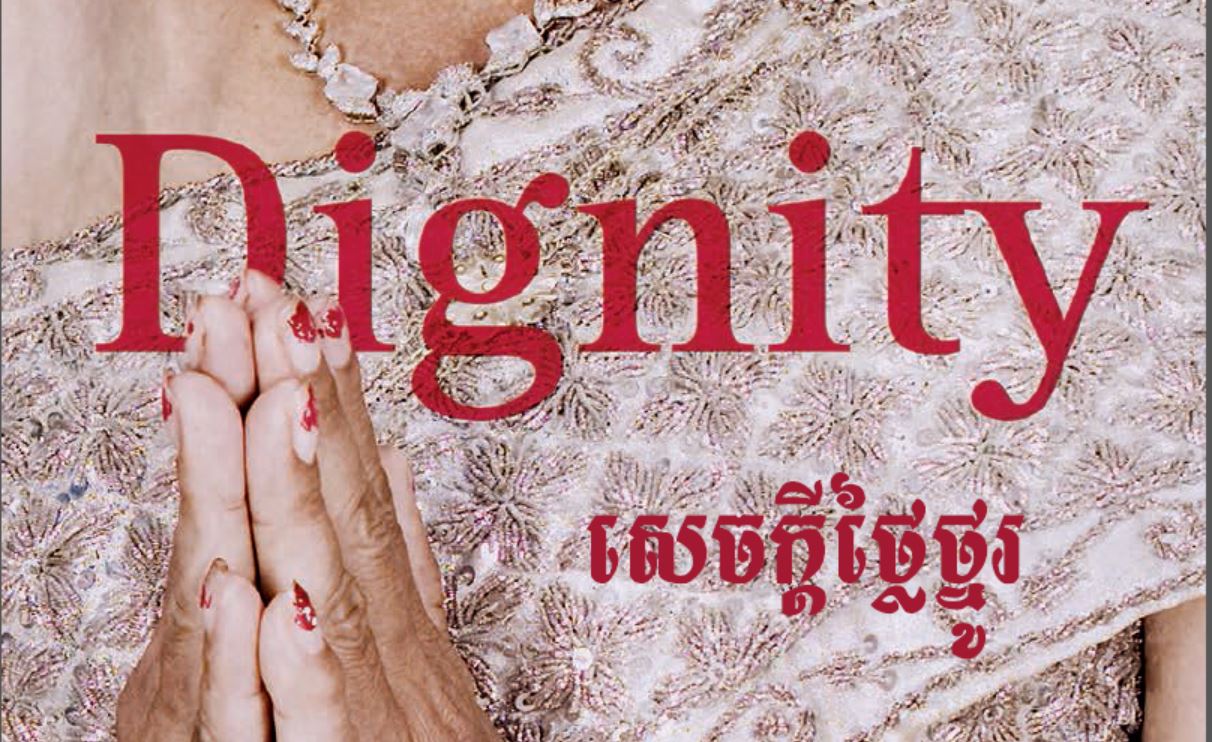
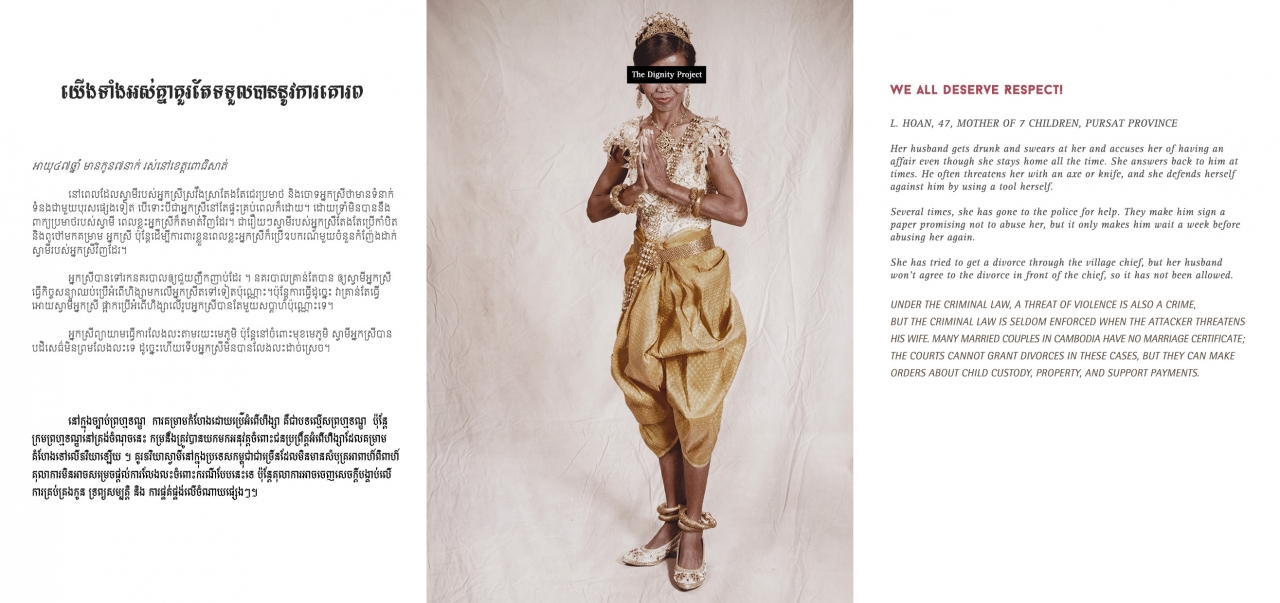

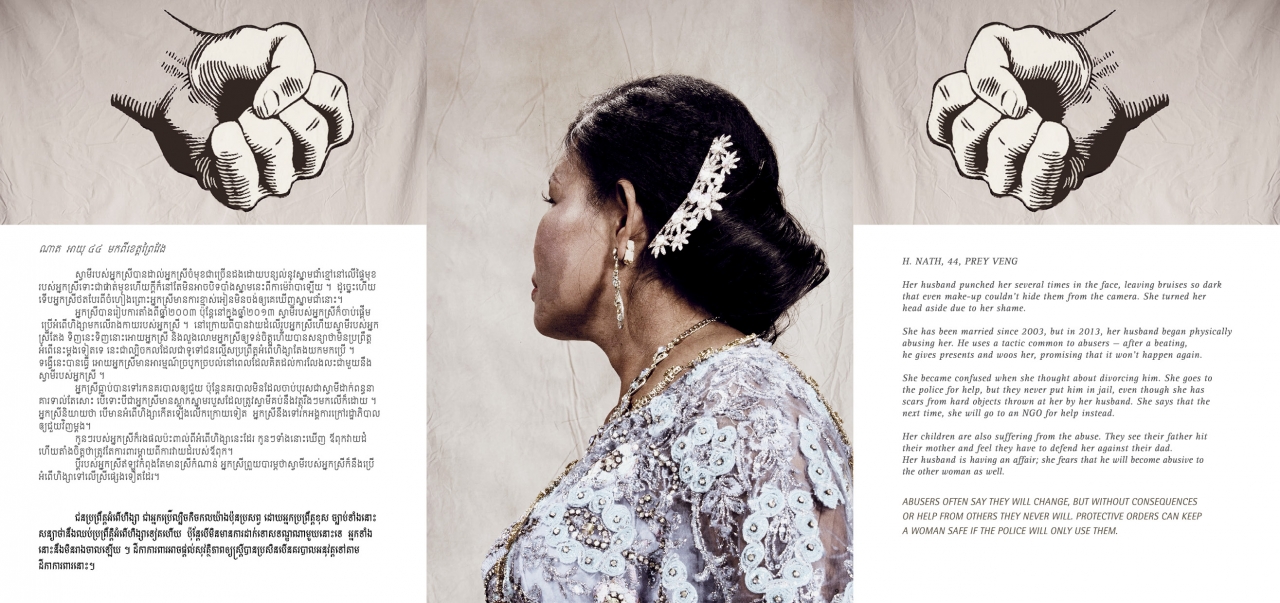
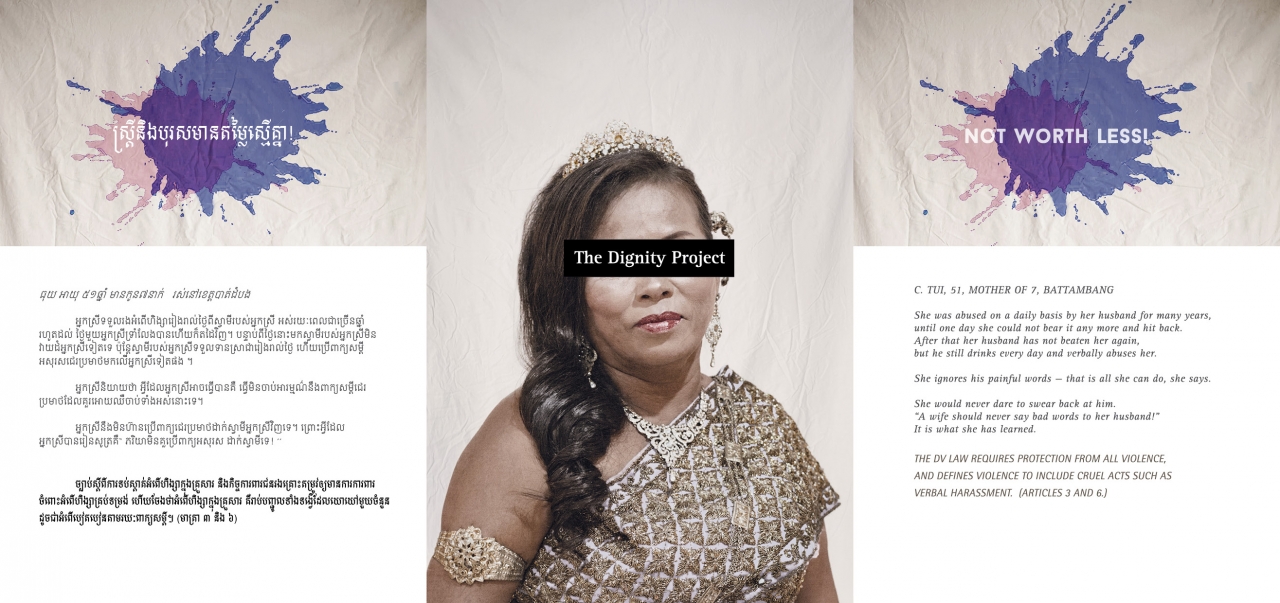
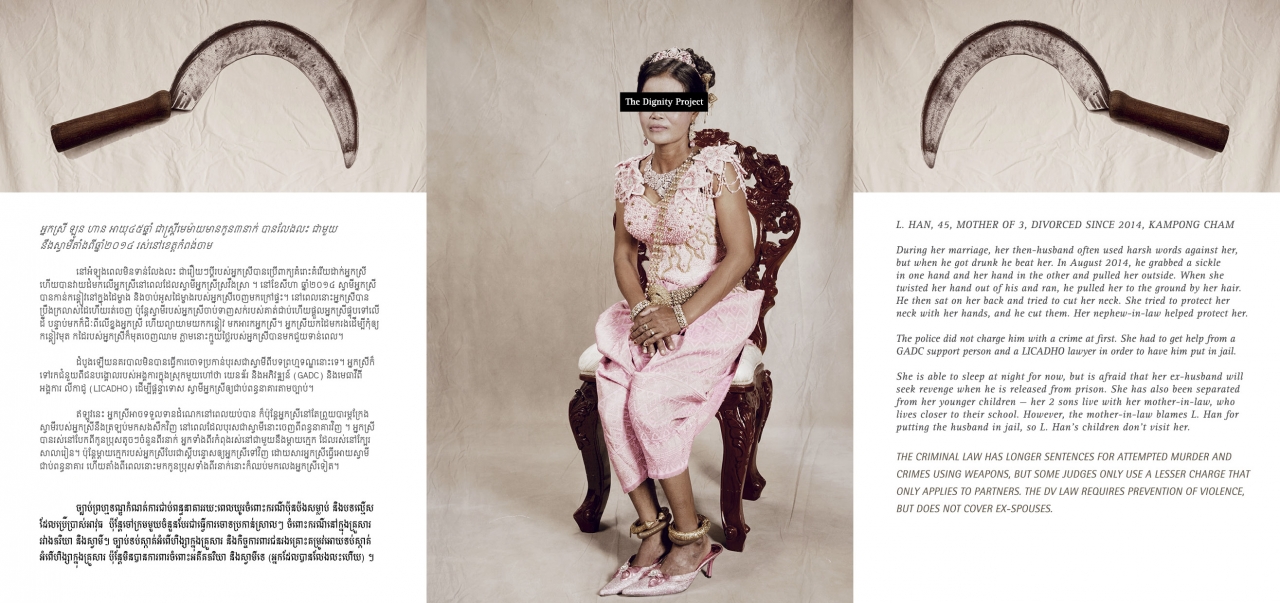


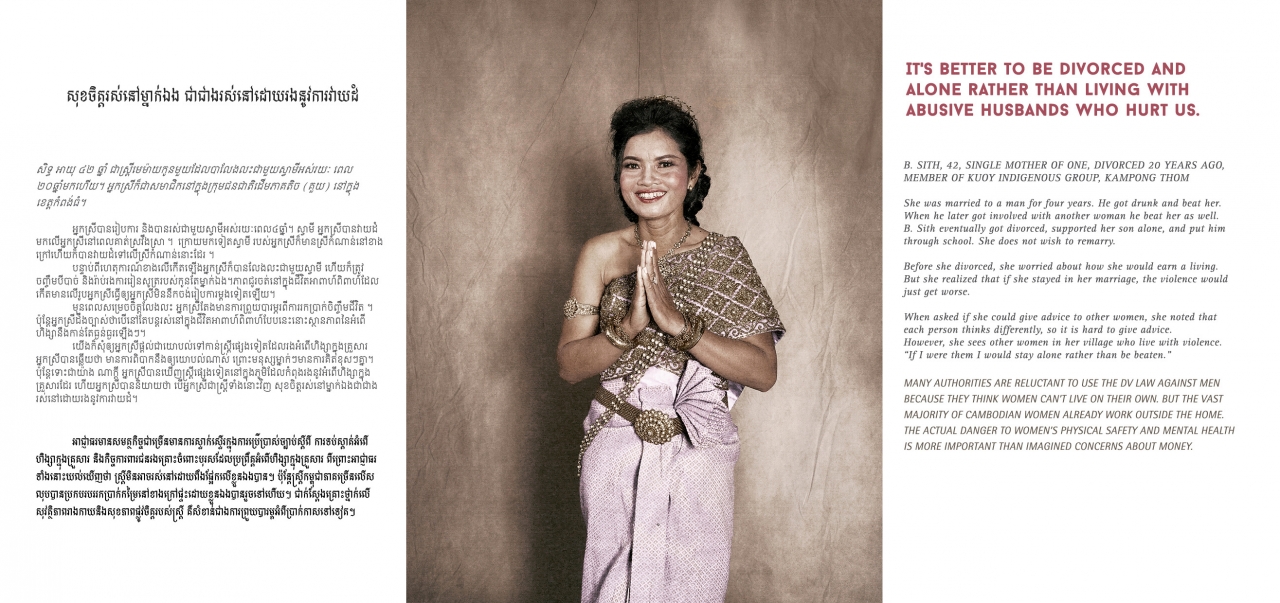

Artist Statement – Mona Simon
The Dignity Project approaches a violent topic with the aim to look beyond the dramatic sadness of each story, picturing each woman’s strength and uniqueness through the shades of harmonious colours while revealing the unpleasant painfulness, of a hidden truth through describing words.The scars and bruises from the past merge into the skin of the canvas highlighting confiden, beauty and dignty, beyond a broken victim’s lost faith and bitter despair from humiliating suffering.
MEN ARE LIKE GOLD, WOMAN ARE LIKE CLOTH.
— Khmer proverb
This quote is deeply ingrained in Khmer culture. Similar ideas about different expectations for men and women are reflected in poetry written in the last few hundred years by powerful men such as Chbab Srey (Woman’s Law). This poetry was taught in school until 2007 and has been transmitted from generation to generation for centuries to define the role of women as submissive to their husbands. Traditions are effective tools to educate society about its cultural values. The “metaphoric definition” of woman as white silk shows, sadly, that in its essence it destroys the confidence of any woman who is educated to believe in it and gives power to man to value women less than themselves. It uses the symbol of a cloth to describe the temporal value of a woman and the symbol of gold to reflect the infinite value of men. The saying means that gold can be washed clean of dirt while never losing its value, but cloth will always bear stains.
When imagining a victim of domestic violence we automatically see an image of helplessness and brokenness — we see the stains — even though there is also the picture of humble strength beyond the suffering, a loving responsible mother, obedient wife, all and much more part of the same truth.
The photographs were taken in studios in Phnom Penh, where each of the women was allowed to choose a Khmer dress and get make up and hair done while sharing their stories and opinions. Splendorous photographs in Khmer dresses have become a traditional element for couples and their families when getting married. With a similar photographic approach I hope to create a lasting encouraging impression for the participating survivors. They are given an opportunity to share, and also to observe their unique beauty and strength despite of their painful marriage and experiences.
The project aims to show a different perspective to the survivors, the perpe- trators, the communities and authorities, and to society, which hopefully grows in its awareness and becomes more caring and respon-sible towards one another.
Violence destroys trust. Even more so if acted out by abusive family members or systems which are supposed to protect women from harm not cause it. We all deserve caring and respectful attention from our families, communities, society, governments, laws and systems.
Recent studies such as by Dr. Yehuda, a recognized leader in the field of traumatic stress studies, reveal that children carry their parents’ suffering under their skin. They may be born with a vulnerability expressed in their molecules, neurons, cells, and chemicals attached to genes. Researchers found that trauma experienced through violence is genetically passed on to coming generations. This shows how important it is for society to feel responsible for preventing more trauma from happening on any level. Neglecting violence against women, wives, mothers and children damages a crucial part of society, who eventually form the future of a national and global human community.
Historic conditioning has created an imbalanced image of the female role in many cultures throughout centuries. Stories mostly written by men as in the case of the Chbab Srey and many other scriptures, especially religious ones like the Bible for example, made people believe for a long time that women deserve less and need to be ruled by men.
“TO THE WOMAN HE SAID, ‘I WILL SURELY MULTIPLY YOUR PAIN IN CHILD-BEARING; IN PAIN YOU SHALL BRING FORTH CHILDREN YOUR DE- SIRE SHALL BE FOR YOUR HUSBAND, AND HE SHALL RULE OVER YOU.’”
— Bible, Genesis 3:16
Many powerful teachings like these have formed our ‘natural’ understanding about gender roles in history and continue to impact human society until today. Sadly in some places in our world this thinking is still obvious normality. Saying suffering is for the woman while pleasure and power for the man.
The question is how can such a crippling discrimination towards half of its populaion be beneficial for the human race. Throughout thousands of years in most parts of the world, man and woman have been taught to believe the female gender is weak, ignoring that in reality they often had and still have to be stronger than man in many ways.
Isn’t it time to actually address this conditioned understanding, deeply question its consequences and educate respectful values, to correct these damaging messages from the past?
IGNORANCE CREATES SUFFERING — BUDDHA
In the contrasting nature of male and female there is no question, that both are complementary — how can one be more important than the other? It seems absurd.
I hope The Dignity Project inspires to question our views and conditioned normality.
[Note: this statement was edited to reflect that the saying about women as white cloth does not come from Chbab Srey.]

